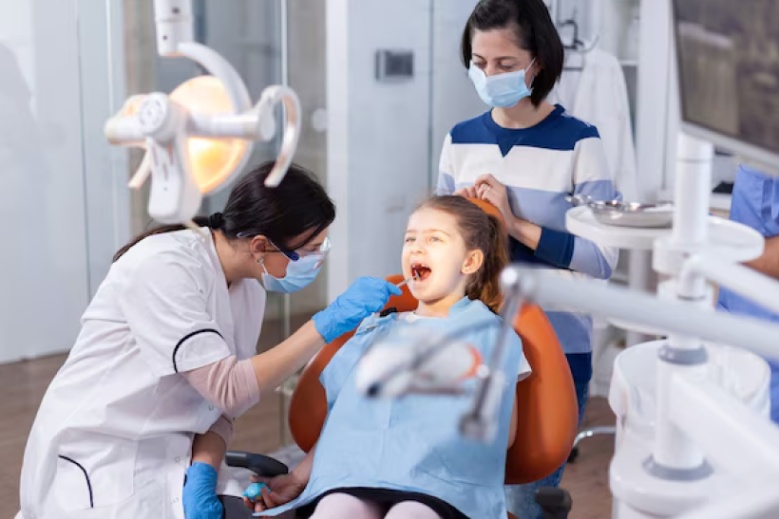Children's Dentistry

When Should a Child First Visit the Dentist?
It’s recommended that a child’s first dental visit should be by the age of 1 or within six months after the first tooth appears. Baby teeth typically start erupting around six months of age, making early dental care essential for healthy development.
What Is a Pedodontist and How Are They Different?
A pedodontist, also known as a pediatric dentist, specializes in treating infants, children, and adolescents (ages 0-12). After completing their BDS, pedodontists undergo additional years of training in pediatric dentistry. This specialized knowledge and experience allow them to handle the unique dental needs of children with care and expertise.
Why Is Special Care Needed for Baby Teeth?
Although baby teeth are temporary, they play a critical role in your child’s overall development. They help children speak, chew, and smile properly while maintaining the necessary space for permanent teeth. Losing baby teeth prematurely due to decay or damage can lead to shifting of nearby teeth, resulting in misaligned or crooked permanent teeth. Additionally, a child’s oral health significantly impacts their overall health and well-being.
What If My Child Develops a Thumb-Sucking Habit?
Thumb-sucking is common among young children and usually stops naturally as they grow older. While it generally doesn’t cause permanent damage, prolonged thumb-sucking after permanent teeth begin to erupt may lead to dental issues. If your child continues this habit, consult a dentist to evaluate any potential impact on their teeth.
When Can a Child Start Using Toothpaste, and How Much Should Be Used?
Once your child has a few teeth, you can introduce toothpaste using a soft-bristled baby toothbrush or finger brush. Follow these guidelines:
- Children under 3 years: Use a tiny amount of toothpaste, about the size of a rice grain.
- Children aged 3-6 years: Use a pea-sized amount of toothpaste.
Choose a non-fluoride toothpaste, as young children tend to swallow toothpaste while brushing, and excessive fluoride can lead to staining. Supervise your child’s brushing until they are capable of brushing independently, usually around 6-7 years of age.
